An Integral Theory
The two most recent essays trace how a philosophical idea from the 1600s became the operating system for global coordination — operating simultaneously through your wallet, your conscience, and your sense of who you are as a person.
Understanding this matters greatly, because the system feels like personal growth, scientific necessity, and moral truth — all at once.
This is a summary post of these two essays.
The story begins with Baruch Spinoza who collapsed the distinction between God and Nature. His radical idea was that ethics doesn’t come from divine commandments handed down from above, but emerges from within reality itself. If we properly understand how the world actually works, we’ll know how we ought to live.
This vision of ‘immanent ethics’ — morality built into nature rather than imposed from outside — spent three centuries evolving. In the 1890s, philosopher Paul Carus anchored it to scientific method: if science reveals universal truths about reality, and ethics flows from reality, then ethics becomes universal too. One reality, one method of knowing it, one overarching framework for how to live. In revolutionary Russia, Alexander Bogdanov added organisational theory: study how complex systems actually function, and you’ll discover principles for how human societies should be organised.
By the mid-20th century, this philosophical vision developed into tools. Systems theorists like Ludwig von Bertalanffy and Kenneth Boulding showed how to model interconnection. Economist Wassily Leontief developed input-output analysis, mapping how resources flow through economies. Cyberneticians built feedback systems. The Club of Rome’s 1972 ‘Limits to Growth’ report demonstrated you could model the entire planet — and project different future outcomes.
The culmination came in 2000 with the Earth Charter — a planetary constitution grounding ethics in scientific understanding of how the world works. Its four pillars perhaps sound reasonable: respect for nature, ecological integrity, social and economic justice, democracy and peace. But the charter ultimately represents the belief that universal ethics can be derived from global models of planetary systems.
Three Domains, One Architecture
The contemporary system doesn’t just operate through international treaties or scientific conferences. It runs simultaneously through material infrastructure, spiritual authority, and psychological development — three domains that reinforce each other seamlessly.
The Material Layer operates through measurable systems. The International Institute for Applied Systems Analysis produces integrated assessment models supposedly tracing how energy choices affect food systems, how land use influences climate, how policy decisions cascade through interconnected planetary systems. The Planetary Boundaries framework defines nine critical thresholds — climate change, biodiversity loss, nitrogen cycles. Updated assessments claim we’ve allegedly transgressed six of nine.
These models inform binding frameworks. The UN’s Pact for the Future coordinates responses to ‘global complex shocks’ through the UN Emergency Platform. Proposals to criminalise ‘EcoCide’ through the International Criminal Court would prosecute environmental harm. Efforts to eliminate Security Council veto power would enable global enforcement. And crucially, central banks are developing programmable digital currencies that could enforce sustainability requirements at the transaction level — your payment clears only when validators confirm compliance.
The Spiritual Layer translates the same model outputs into sacred obligation. Pope Francis’s encyclicals Laudato Si’ (2015) and Laudate Deum (2023) don’t just acknowledge climate science — they transform planetary boundaries into divine mandate for 1.3 billion Catholics. Similar declarations exist across Islamic, Buddhist, and Hindu traditions. When religious authorities frame environmental stewardship as moral duty and resistance as sin against creation, they’re providing spiritual legitimation for the same framework the models define.
The Psychological Layer makes the whole architecture internal to your identity, beginning before you can consent. UNESCO’s Global Citizenship Education, rolled out in school systems worldwide, teaches elementary-age children — before critical thinking fully develops — that they’re primarily members of a global community, that local and national identities are narrower circles to transcend. Social-Emotional Learning (SEL) trains not just how you think but how you feel — installing guilt when you deviate from system requirements, pride when you align, anxiety when you consider non-compliance.
Developmental frameworks like Ken Wilber’s Integral Theory and Graves/Beck’s Spiral Dynamics map moral maturity as a hierarchy of stages: from egocentric (’me’), to ethnocentric (’us’), to worldcentric (’all of us’), to integral (holding all perspectives). But if planetary citizenship represents the highest stage of moral development, then disagreement isn’t principled dissent — it’s arrested development.
You’re not wrong; you’re ‘immature’.
You’re encouraged to ‘think systemically’ and ‘hold multiple perspectives’ — the language of second-order cybernetics and integral consciousness. You feel thoughtful, nuanced, reflexively aware. But the boundaries of what perspectives count as legitimate, which system constraints are questionable, and what counts as ‘mature’ thinking have already been set.
You’re not rewriting the constitution — you’re efficiently administering bylaws within preset parameters. You’re an operator captured within someone else’s system.
The Models as Master Control
What unifies all three domains is a single source: global computational models that claim to define objective reality. Climate models, integrated assessment models, planetary boundary calculations — these aren’t just scientific tools. They’ve become the mechanism that defines what counts as truth.
The models say we’ve transgressed planetary boundaries → therefore material policy must enforce limits → therefore religious duty requires compliance → therefore mature psychology accepts responsibility to the whole.
When your banking app shows your environmental impact and your ‘Nectar’ grocery shopping loyalty card nudges you toward ‘better’ choices, it’s executing the same model outputs that inform UN emergency platforms and papal encyclicals. The genius is that you experience this as three separate confirmations — science, morality, and personal growth — when it’s actually one framework operating through three channels.
Traditional propaganda tells you what to think. This architecture shapes how you develop the capacity to think, ensuring your mature, autonomous judgment arrives at the ‘correct’ conclusions naturally. You police yourself not through fear, but through pride in your development.
The Accountability Vacuum
Here’s the most troubling part: when these models are wrong — as they frequently are — nobody faces consequences.
Climate models simulate a minuscule fraction of atmospheric processes and repeatedly fail to predict regional weather patterns. There’s a perverse inverse relationship at work: the worse the weather becomes, the less accurate the predictions. Consequently, when the need for accurate forecasting is highest — during extreme events that supposedly justify emergency powers — that’s precisely when the modeling system cannot provide reliable guidance. The models claim authority based on predicting crises they cannot actually forecast when those crises occur.
Integrated assessment models layer economic projections onto physical science projections, compounding these uncertainties. Yet these models drive trillion-dollar policies with the force of revealed truth.
When predictions fail to materialise, modelers claim they need more data and use failures to justify expanded surveillance infrastructure. When models fail to predict actual extreme events, the response is identical: more sensors, more computational power, more surveillance. Every outcome — success or failure — justifies expansion of the system, never contraction. Politicians defer to ‘best available science’. Religious authorities frame compliance as divine obligation. Funders invoke humanitarian necessity. Each actor deflects responsibility to another part of the system.
Meanwhile, the models themselves are opaque ‘black boxes’ requiring specialised expertise to audit — expertise concentrated in the same institutions producing them. Dissent becomes functionally impossible when ‘the science’ is embodied in simulations only credentialed experts can interpret, and those experts work for the institutions claiming emergency authority.
Free Will Operationally Constrained
This brings us to the core question: what happens to human freedom in this system?
You remain legally free to choose. But the architecture makes certain choices prohibitively difficult — socially, economically, psychologically. When banking apps track your footprint, religious authorities call compliance sacred duty, developmental frameworks diagnose dissent as immaturity, and social pressure makes deviation costly, freedom becomes theoretical.
Sweden’s ‘flight shame’ (flygskam) demonstrates this vividly. By 2018-2019, air travel had become something to feel guilty about due to carbon footprint awareness. People stopped flying not because of legislation, but because of internalised moral obligation and social pressure. The remarkable part: many who quit flying ‘did not describe themselves as shamed, but rather as having been supported to live up to their own moral standards’. The global ethic had become their personal ethic. They were policing themselves, experiencing relief from aligning behavior with values that had been systematically cultivated — often without their realising it.
You’re free to choose... within bounds made acceptable through education that shaped your values before critical thinking developed, emotional conditioning that trained gut responses, social pressure that makes deviation psychologically expensive, and financial infrastructure that may soon execute automatically.
The system doesn’t eliminate free will through philosophical argument — it redefines it operationally. Free will becomes successful alignment between your neural patterns and system requirements. You want what the system needs you to want. And you experience this as authentic self-expression, personal growth, moral maturity.
Why This Matters
The two essays argue that what we’re witnessing is Alexander Bogdanov’s century-old blueprint executed at planetary scale: a unified epistemology (truth as organised collective experience), applied through organisational science (systems theory), implemented through continuous cultural formation (education from childhood through ‘lifelong learning’), producing people who function as conscious cells in a global superorganism.
Whether you find this vision inspiring or terrifying depends on a simple question: who controls the models that define reality for everyone else? And what happens when those models are wrong?
The remarkable achievement is creating coordination where external enforcement becomes unnecessary because the architecture lives inside you — across your transactions, your beliefs, and your identity simultaneously. The risk is building a system so comprehensive that questioning it feels like questioning your own moral development, so integrated that there’s no institutional layer outside it for appeal, so automated that human judgment becomes obsolete.
You don’t need to agree with every claim in these essays to recognise something worth examining: when material infrastructure, spiritual authority, and psychological development all point the same direction, justified by opaque models with no accountability when wrong, we should at least ask who’s steering, and whether we consciously chose this path — or whether we were carefully guided to experience systematic direction as free choice.
The answer matters. Because the architecture is already operational.


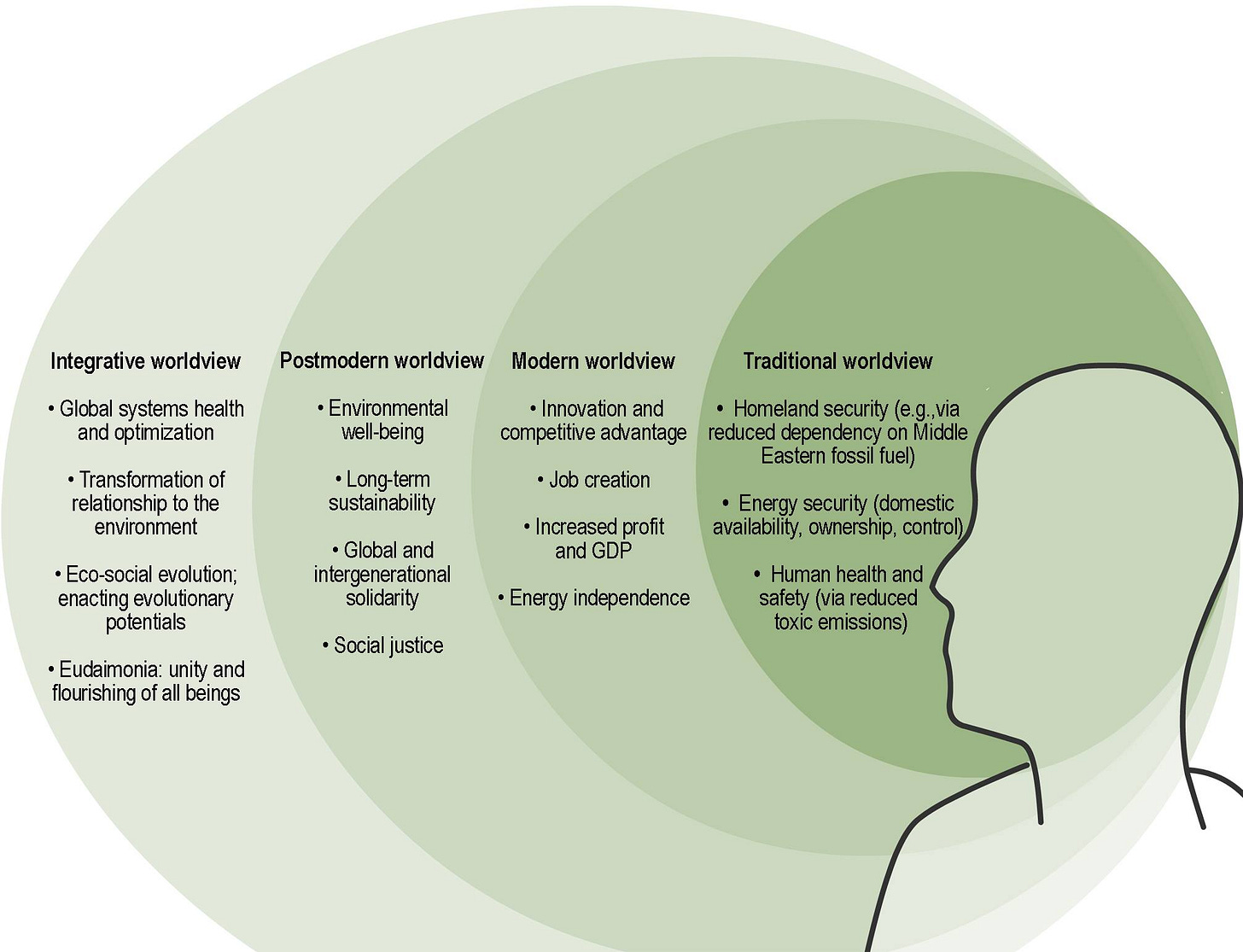
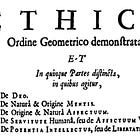
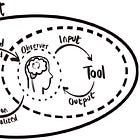

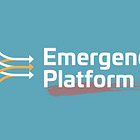
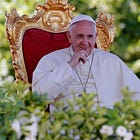
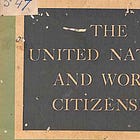
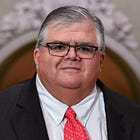


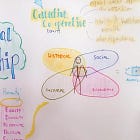
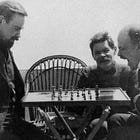
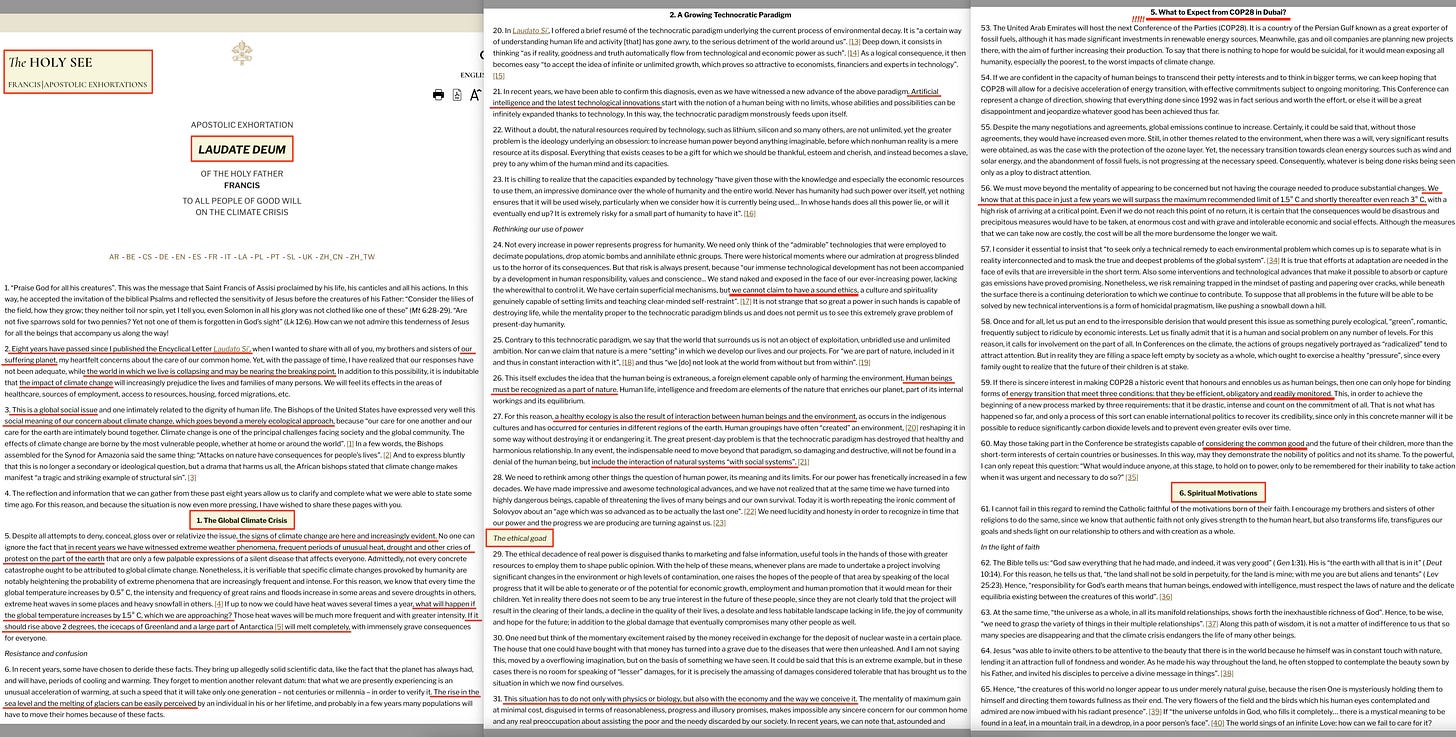
This could be summed up in Harari's words: "Congratulations, you are now hackable animals." And we are nothing more than "Pavlov's dogs," responding only to internalized, undetectable injunctions, driven by a principle of integration (not being rejected, belonging to the group), through various means such as our habits, our upbringing, our culture, hyperconnectivity, submission to authority, learning by "mirror effect"... In short, we are conditioned, predictable, and malleable, following a collective script.
ESC, you've laid the groundwork for a discussion on a truly robust firewall. ^^
Its pure evil, and the vast majority of humanity have no idea how badly they are being manipulated. Hopefully people wake before its too late. We knew the Catholic Church was infiltrated and corrupt back in the 90's when it became obvious they were protecting pedophiles. Yet people still belong to this group. Eventually there will be a reckoning, there always is.